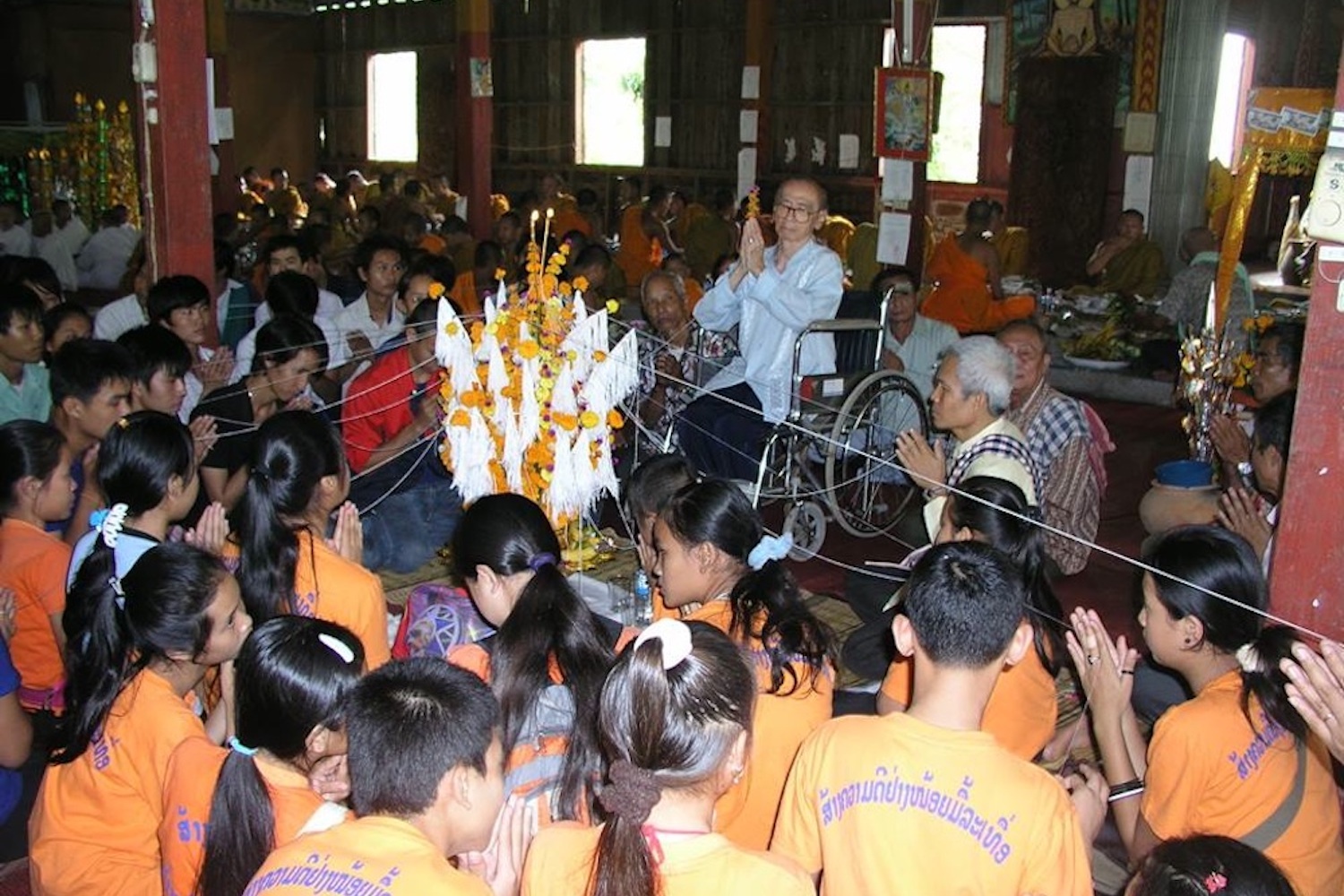FIDH/LMHR: 06 June 2016

(Paris) Lao authorities must immediately and unconditionally release three individuals who have been arbitrarily arrested and detained incommunicado for criticizing the government, FIDH and its member organization Lao Movement for Human Rights (LMHR) said today.
“The government’s systematic repression of all forms of peaceful dissent underscores the immense gap between Vientiane’s promises to the international community and its abusive behavior at home. It’s time for foreign governments and donors to raise their voices about human rights violations in Laos and demand Vientiane change its ways.” Karim Lahidji, FIDH President
Ms. Lodkham Thammavong, 30, and Messrs. Somphone Phimmasone, 29, and Soukan Chaithad, 32, were arrested in March 2016 after returning to Laos from Thailand on 18 February 2016. The three had returned to apply for passports in order to re-enter Thailand and obtain the necessary documents to work legally.
On 5 March 2016, police arrested Lodkham and Somphone, who worked in Bangkok as a domestic worker and a security guard respectively, at Lodkham’s family home in Ban Vang Tay Village, Nong Bok District, Khammuan Province. The two were initially held at the Khammuan provincial prison in Tha Khaek town. In early May 2016, they were both transferred to an unknown prison in Vientiane. It is believed Soukan, who worked in Bangkok as a delivery driver, was arrested on 22 March 2016 at the Ministry of Public Security head office (‘’Ko Po So“) in Savannakhet City, where he went to apply for a passport.
On 25 May 2016, state-run TV showed Lodkham, Somphone, and Soukan in custody at police headquarters in Vientiane. The news report said the three had been arrested for threatening national security by using social media to tarnish the government’s reputation. The date on which the video of Somphone, Lodkham, and Soukan was taken is not known and the fate or whereabouts of the three remain unknown.
The arrest of Lodkham, Somphone, and Soukan was due to their repeated criticism of the Lao government while they were working in Thailand. The three had posted numerous messages on Facebook that criticized the government in relation to alleged corruption, deforestation, and human rights violations. On 2 December 2015, Lodkham, Somphone, and Soukan were among a group of about 30 people who protested against their government in front of the Lao embassy in Bangkok.
“It is extremely troubling that Lodkham, Somphone, and Soukan are likely to face years of imprisonment in Laos’ terrifying jails because they told the truth about the appalling human rights situation and the lack of good governance in the country. Authorities must disclose their fate or whereabouts and immediately and unconditionally release them.” Vanida Thephsouvanh, LMHR President
Arbitrary detention of peaceful dissidents is not a new phenomenon in Laos’ recent past. On 26 October 1999, police in Vientiane arrested five members of the Lao Students Movement for Democracy (LSMD), Thongpaseuth Keuakoun, Sengaloun Phengphanh, Bouavanh Chanhmanivong, Khamphouvieng Sisa-at, and Keochay, for planning peaceful demonstrations that called for democracy, social justice, and respect for human rights. All five were sentenced to 20 years in prison for “generating social turmoil and endangering national security.” Two of them, Thongpaseuth and Sengaloun, remain in solitary confinement in Vientiane’s Samkhe prison. Khamphouvieng died in Samkhe prison from food deprivation and prolonged heat exposure in September 2001. To this day, the fate or whereabouts of Bouavanh and Keochay remain unknown despite the Lao government’s claim that authorities released Keochay upon completion of his prison term in 2002 and transferred him “to guardians to further educate him to become a good citizen.”
Also unknown are the fate or whereabouts of nine other activists – two women, Kingkeo and Somchit, and seven men, Soubinh, Souane, Sinpasong, Khamsone, Nou, Somkhit, and Sourigna – who were detained in November 2009 for planning to participate in pro-democracy demonstrations in Vientiane.
Many of the above-referenced cases amount to enforced disappearance. Article 2 of the International Convention for the Protection of All Persons from Enforced Disappearance (ICPPED) defines enforced disappearance as “the arrest, detention, abduction or any other form of deprivation of liberty by agents of the State or by persons or groups of persons acting with the authorization, support or acquiescence of the State, followed by a refusal to acknowledge the deprivation of liberty or by concealment of the fate or whereabouts of the disappeared person.” Despite signing the ICPPED on 29 September 2008, Laos has not yet ratified the convention.
FIDH and LMHR reiterate their call for the Lao government to conduct swift, thorough, and impartial investigations into all cases of enforced disappearances in the country and hold those responsible accountable. The two organizations also urge the Lao government to speed up the investigation into the enforced disappearance of prominent civil society leader Sombath Somphone, who was last seen at a police checkpoint on a busy street of Vientiane on the evening of 15 December 2012.
On 23 June 2015, during its second Universal Periodic Review (UPR), Laos rejected all eight recommendations that called for investigations into all allegations of enforced disappearance in the country and dismissed such allegations as “not true.” The government acknowledged Sombath’s disappearance, but accepted only four of the 10 recommendations that called for an investigation into his disappearance.

